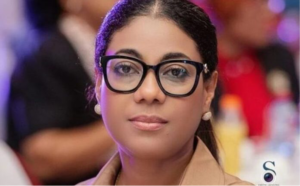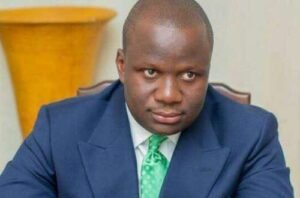
One result of a Nana Addo Dankwa Akufo-Addo presidency that seems to most likely to disturb and strangulate opposition Political Parties is his ability to shape the Courts for many decades to come, long after he’s gone.
President Akufo-Addo has radically packed the Courts in three years of his four years mandate.
Desirous of unpacking the plan to pack the courts, President Nana Addo Dankwa Akufo-Addo on July 3, 2018 appointed four Justices to the Supreme Court following the retirement of some long-serving justices.
Announcing the nominees, the President cited Article 144 (2) of the 1992 Constitution, as his source of mandate to appoint Justice Samuel K. Marful- Sau and Justice Agnes M.A. Dordzie, (all of Appeals Court), the former President and the Ghana Bar Association Nene A. O. Amegatcher and an academic Prof Nii Ashie Kotey, a former Dean of the Faculty of Law of the University of Ghana.
The President in November 2019 made fresh appointment to the Supreme Court.
The three; Justice Mariama Owusu, Justice Lovelace Johnson and Justice Gertrude Tokornoo, were elevated to the Supreme Court bench from the Court of Appeal.
On Tuesday, 17th December 2019, President Nana Akufo-Addo swore, into office, forty-five (45) Justices of the High Court and Court of Appeals, and hinging on the advice of the Judicial Council, at a ceremony at Jubilee House.
The forty-five (45) Justices were made of thirty-four (34) High Court Judges, and eleven (11) the Court of Appeal Judges, were said to eminently fit and qualified for the positions.
Out of the 34 Justices of the High Court, there are 22 women and 12 men, and out of the 11 Justices of the Court of Appeal, there are 5 women and 6 men.
Then, on March 3, 2020, President Akufo-Addo made further appointment to the Supreme Court. The three nominees are Lawyer Yoni Kulendi of Kulendi @ Law Chambers, Issifu Omoro Tanko Amadu and Clemence J. Honyenuga to replace Justices Julius Ansah, Nasiru Sulemana Gbadegbe and Anthony Alfred Bennin.
This brings the total appointment of Judges to fifty-five in three years under Akufo-Addo’s Presidency.
Even though there’s nothing in the Constitution that defines the number of justices a President can appoint under his or her tenure, it has the potential of eroding the confidence in our judiciary considering how partisan and loyal people have become to their appointor.
‘For Political Parties running for president might want to tread carefully before taking stands likely to hurt them and their party in 2020 and beyond’. A connoisseur of Ghanaian politics told this paper. It’s dangerous for the judicial system, and the result may be catastrophic, he added.
According to him, the thinking of the appointing authority is that they would be able to affirm the decisions that were loudly opposed by minority political groups.
For him, in securing judicial independence, it is noteworthy that the appointments process does not result in politically biased judges, or judges who are, or feel, beholden to the appointing body or appointor, or to any individual or organization. In our case (Ghana), it appears that power entrusted in the Executive to make such sensitive appointments questions our observance of the solemn principles of separation of powers crucial to the preservation of the Rule of law.
He argued that though it didn’t start with President Akufo-Addo, however much that, our courts have seen some independent minded judges appointed via same constitutional process, the seeming invasion of “cronyism and secret soundings” can never be discounted in the appointment process.
‘The act of selection of judges from few commercial law firms in Accra only heightens the suspicion that, the Ghanaian is fast losing confidence in Ghana’s judiciary and its decisions. This practice creates a lasting perception such that, only those few elites fortunate to have been employed in such law firms are “railroaded” into our judiciary. As such the amorous link between such firms and their products at the judiciary can’t be lost on us’.
He recommended that, independence of the appointing authority helps to ensure that the judges who are appointed can act independently, free from political or other improper pressure, in office.
‘The process of appointment in some developed countries is charged into a Judicial Appointment Committee made up of lay persons and jurists. They make the meritorious appointments based on applications from qualified applicants’.
Likewise, security of tenure will result in judicial independence. It’s ensuring that judges cannot be dismissed because they make unfavorable decisions against or are unpopular with Government.
He called for the establishment of a separate independent fund from the consolidated fund to take care of judge’s welfare would be appropriate to judicial independence. This ensures that Judges are protected against threats of cuts to their salaries, against political pressure in relation to their judgments.






